Tunisia parliament approves unity government of Youssef Chahed
- Published
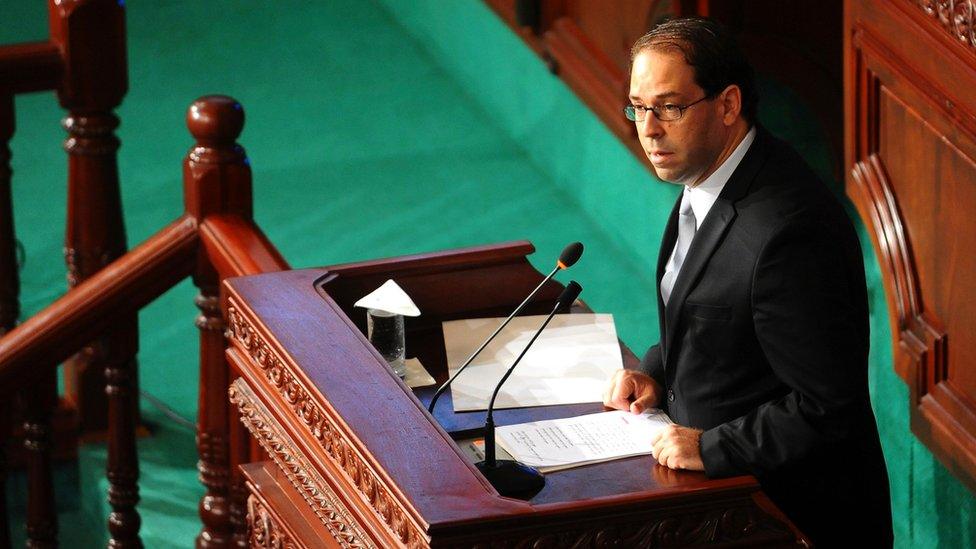
Youssef Chahed promised a tough line on the economy
The Tunisian parliament has voted to approve a new government, which will take office in the next few days.
The unity government, led by prime minister-designate Youssef Chahed, was backed by 167 members of the 217-seat parliament.
The government includes Islamists, leftists, unionists and independents.
Youssef Chahed, 40, will become Tunisia's youngest prime minister since the country won its independence from France in 1956.
Mr Chahed warned in parliament that an austerity programme, with public-sector job cuts and tax rises, would be inevitable if Tunisia does not overcome its economic difficulties.
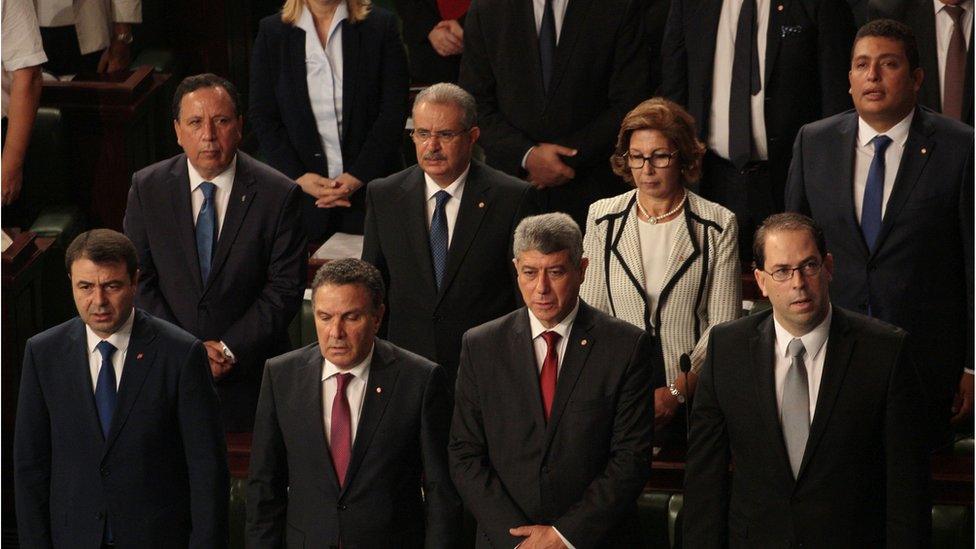
The new unity government was approved by parliament with a resounding majority
He was named as the next prime minister after his predecessor, the US-trained economist Habib Essid, was dismissed in a no-confidence vote last month.
Mr Essid, who has been in office for less than two years, has faced criticism for what his opponents say is his failure to push through economic reforms.
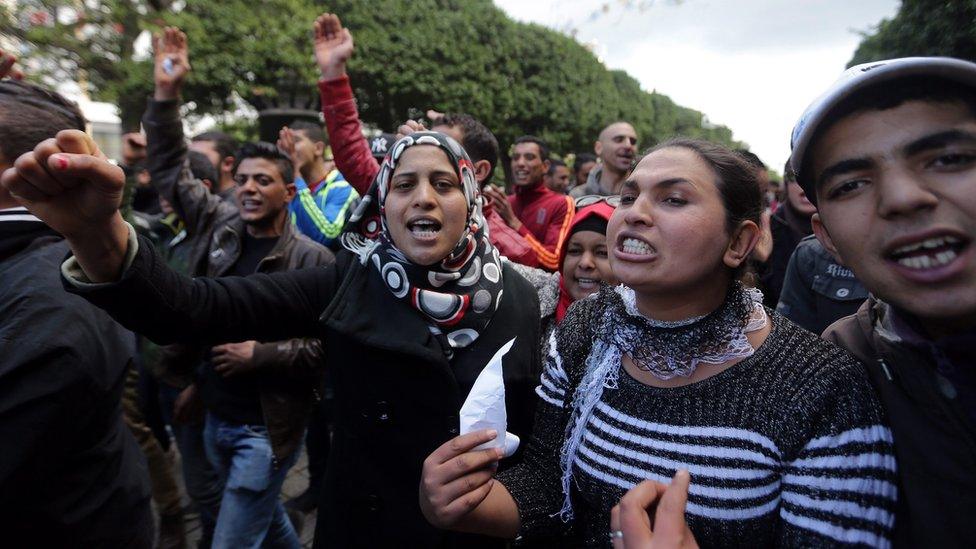
More than a third of young people in Tunisia are without work
Unemployment has worsened since the 2011 revolution, when President Zine al-Abidine Ben Ali was ousted. More than a third of young people in Tunisia are without work.
The north-African state is struggling with lower tourism revenues after two Islamist militant attacks on foreign tourists last year hit what is one of its key industries.
Strikes and protests over jobs have also hurt the country's important phosphate industry.
Tunisia's uprising was the first of the Arab Spring, and often hailed as the most successful with the country now functioning as a parliamentary democracy.
- Published22 January 2016
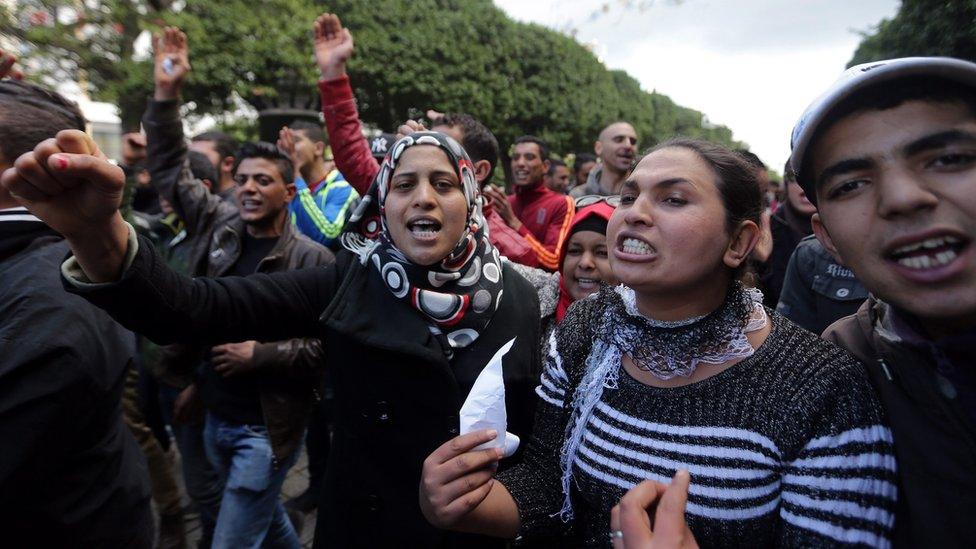
- Published18 January 2016
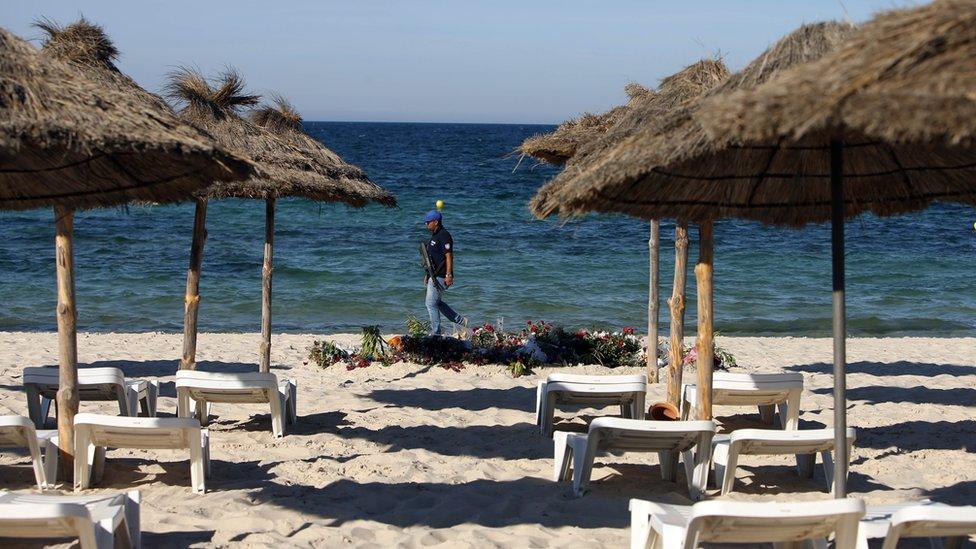
- Published10 December 2015
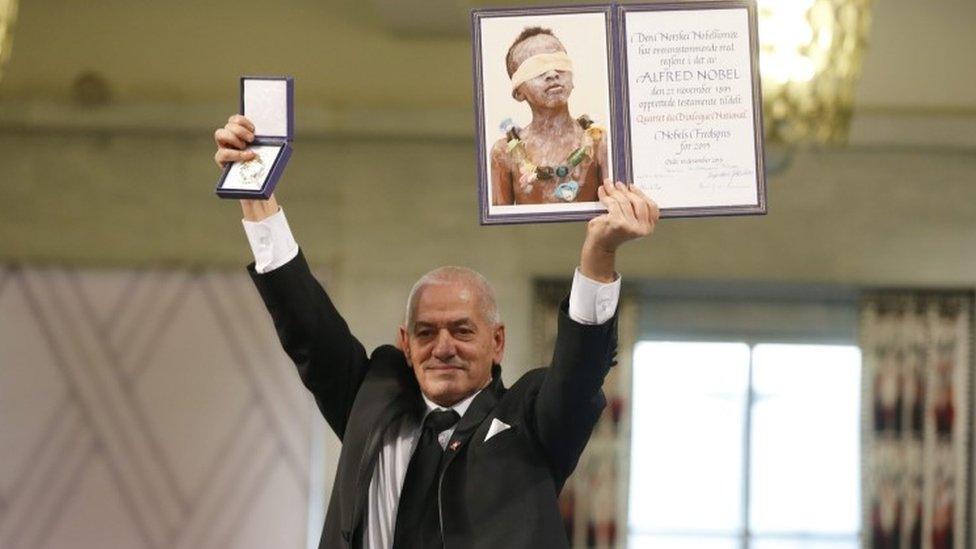
- Published12 October 2015
